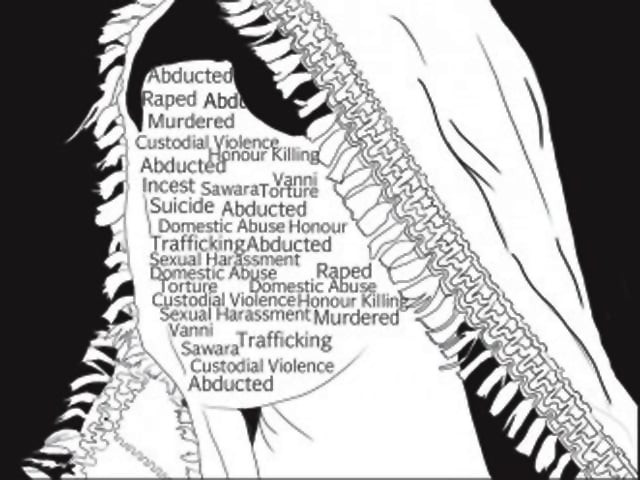Gender parity: Bill passed for women’s rights, but the fight needs momentum
Activists, lawyers and MPAs agree that implementation of anti-women practices bill is lacking .

“The failures come when it comes to the implementation of these laws,” said Muttahida Qaumi Movement MPA Zarin Majeed. “It is because of the lacking infrastructure and loopholes in our institutions.”
The seminar was titled, “Legislative Watch Programme for Women Empowerment” and was organised by the Aurat Foundation.
The resident director of the Aurat Foundation, Mahnaz Rahman, recalled her journey from the first meeting of the Women’s Action Forum (WAF), during General Ziaul Haq’s time, till now. “Recently we have had so much to celebrate as women with the passing of the recent bills, because of all the seeds planted by the WAF in the ‘80s.”
Sharmila Faruqi, the adviser to the chief minister, lamented the fact that she worked on so many cases of women with no results. She cited the example of the Mukhtaran Mai case and termed the suo-motu decision of the Supreme Court as an “unfavourable verdict.”
“Many times we get convictions but the perpetrators appeal and are acquitted by the higher courts,” she said. “It makes one wonder what was the point of pursuing the cases.” But, she said that women must keep raising their voice for “nothing else but their own self-respect.”
Lawyer Haq Nawaz Talpur also touched on similar issues. “We have to ensure that perpetrators of heinous crimes don’t have the benefit of suspended sentences during appeals, which in some cases take years to conclude,” he said. “If we can classify some of the offences where the sentences aren’t suspended then it will act as an even greater deterrent.”
Talpur urged that women from rural areas have to be taken on board for any legislation on the provincial level. He stressed that words like “injustice” are still too weak for what sometimes women have to face. The rural women have to be heard, he said.
MPA Nusrat Sehar Abbasi of the Pakistan Muslim League- Functional, and Advocate Rubina Aman Brohi highlighted that woman members of different political parties unite when it comes to women’s issues.
Abbasi said that it is also important to work on the federal level. However, she added, “Three to four bills dealing with women’s issues were ready and on the table in the Sindh Assembly. But we don’t understand why they haven’t yet managed to make it to the floor.”
The laws have to be followed at the grass roots level and mindsets have to be changed for the laws to generate any change in the society. “The change must also come from the top,” stressed MPA Abbasi. Rape cases should not be politicised and the government should not intervene in the sentences, she added.
The speakers blamed outdated cultural traditions for abuse against women. They said that most of the practices were un-Islamic and that corruption within our institutions, the judiciary and police, hinder the implementation of the laws.
Published in The Express Tribune, December 24th, 2011.



















COMMENTS
Comments are moderated and generally will be posted if they are on-topic and not abusive.
For more information, please see our Comments FAQ